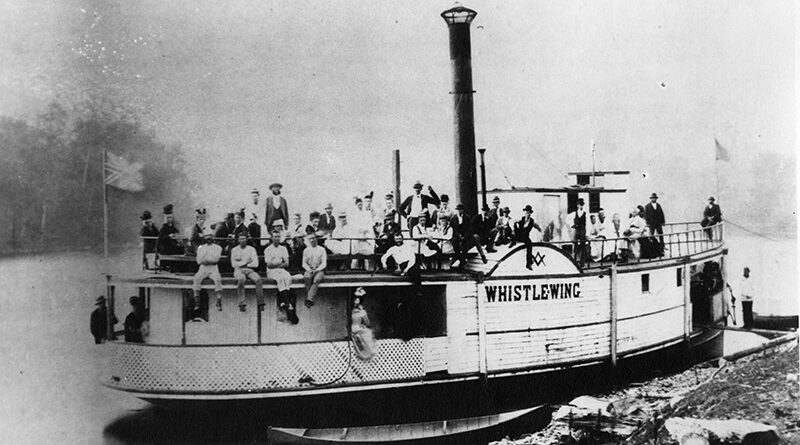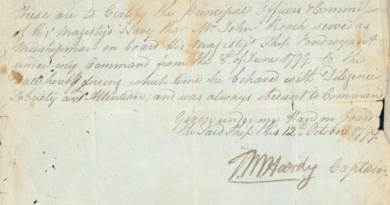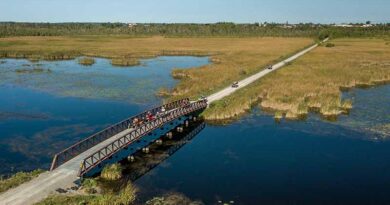“Commodore” Henry Calcutt & His Steamboats
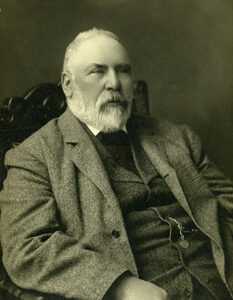 When Henry Calcutt’s name is mentioned, it is usually associated with ale and beer.
When Henry Calcutt’s name is mentioned, it is usually associated with ale and beer.
Brewing was the basis of his fortune but his real love was steamboats, and resulted in his nickname of “Commodore” – a naval rank above Captain and below Admiral for an officer commanding a squadron.
Henry Calcutt was born in May 1836 in Cobourg, Ontario. His father, James, was a successful Irish brewer who emigrated to Cobourg in 1832 and established a brewery and malting house there. Henry joined the family business at an early age; then in 1855 he and his wife Isabella moved to Peterborough where he quickly set up the Little Lake Brewing Company. This brewery did well, producing good ales and porters until the building burned in May 1864. Calcutt promptly built a new, larger brewery (presently where the Lions’ Centre and Riverside Park are located), hired a Munich brewmeister, switched to making lager, and re-named the company the Calcutt Brewing and Malting Company. It operated until 1922.
With his brewery flourishing, in 1871 Henry Calcutt bought the steamer Enterprise, which ran from the Cobourg-Peterborough Railway terminus at Harwood on Rice Lake. The spring of 1872 saw him replace this vessel with a newly-built passenger steamer, the Whistle-Wing, which was soon joined by the new sidewheeler Golden-Eye. These boats formed the basis of the Calcutt Navigation Company which would, at its peak, comprise six modern steamboats and would pioneer the concept of passenger cruises. For over thirty years, Calcutt’s boats made daily passenger runs and regular excursions. Such groups as the Peterborough Fire Brigade, the 57th Regiment, churches, clubs, and businesses booked his vessels for outings on the Otonabee River and Rice Lake. To further facilitate this business, Calcutt bought two Rice Lake resorts: Idylwyld (east of Harwood), then Juniper Point (north shore).
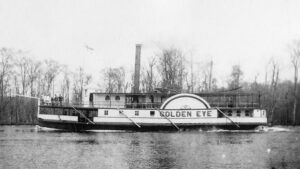 In 1906, Henry Calcutt ceased operating his steamboat line and sold its remaining vessels; both resorts had been sold previously. The “Commodore” died in June 1913, after a lengthy illness brought on by a stroke. He is buried in Little Lake Cemetery – fittingly with a good view of the Otonabee.
In 1906, Henry Calcutt ceased operating his steamboat line and sold its remaining vessels; both resorts had been sold previously. The “Commodore” died in June 1913, after a lengthy illness brought on by a stroke. He is buried in Little Lake Cemetery – fittingly with a good view of the Otonabee.
By: Don Willcock,
The Peterborough Museum & Archives, 300 Hunter St E, Peterborough,
705-743-5180
www.peterboroughmuseumandarchives.ca

